Tante Tod
and the Fraudulent Delaying of Sadness
Format: Zine, Photography, Text, Songs
Dates: May — Sep 2020
Language: English (with songs in Spanish, Arabic)
Publication: Online PDF
Visual research: Online reference board
Dates: May — Sep 2020
Language: English (with songs in Spanish, Arabic)
Publication: Online PDF
Visual research: Online reference board

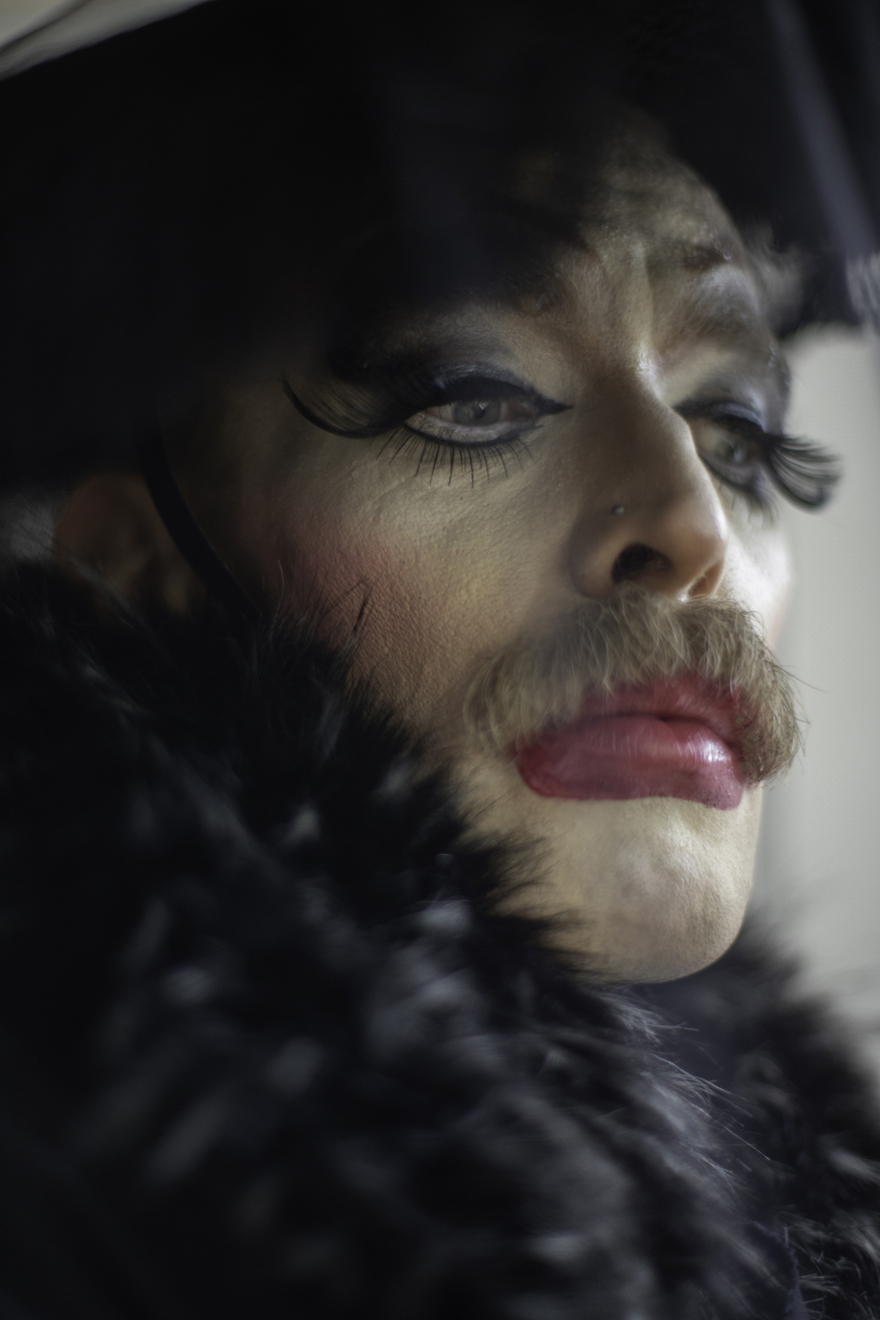
Direction, text, design: Chris Gylee & Aslan
Performance: Aslan
Outside eye, make-up design: Kysy Fischer
Composition: Gérald Kurdian
Voice coach: Amber Fasquelle
Photography: Óscar González
Funded by: Fonds Darstellende Künste aus Mitteln der Beauftragen der Bundesregierung für Kultur und Medien (Initialförderung).
To request a print copy of the zine Tante Tod, and the Fraudulent Delaying of Sadness via post (subject to availability), please email us.
Developing skills to talk about death and dying is an intrinsic part of maintaining and nurturing mental health. Study after study has confirmed queer people, especially those with intersectional identities, face greater mental health challenges and social isolation. During our research period, lasting for four months and starting in summer 2020, we will focus on how we talk about death, grief, and bereavement, specifically as, and with, intersectional queer people. How do we give space for death and dying as a specific part of the queer life experience? How do we handle death and dying in the face of Queer Erasure, where our queerness is deleted or downplayed for the sake of ‘dignity’? How do we confront our connection to the history of death ingrained in the AIDS crisis and the sky-high suicide and murder rates among queer people without shame or despair? How do we initiate conversations and share experiences? How do we engage with the potent and often difficult emotions that these themes bring up for an audience? How do we keep hearts and minds open, yet not trivialise, patronise, or romanticise? How do we honour stories of queer death, queer grief, and queer bereavement as vivid and vital parts of queer life and living?
Tante Tod is a drag character performed by Aslan that first appeared, briefly during a group presentation at the Sophiensaele Berlin, in 2017. She was fabulous and terrifying, and silent as the grave. She read tarot cards — each and every one of which was Death — and listened to participants’ experiences of grief and loss during a one-to-one performance. She has been sleeping ever since, but the things she helped us talk about with one another have come to feel ever more important, and we have found her very hard to forget. We would like to bring her back to ‘life’ and see what she is capable of. As a core part of our research, we will examine how the persona of Tante Tod can help us, and our extended queer family and communities, talk about death and dying.
Drag and lip-synch are potent art-forms, rich in queer heritage. We do not view the current surge in their popularity as threatening, or as dragging queerness into the commercial mainstream and thereby devaluing, but rather as an unprecedented opening through which young (and not so young) queer people are introduced to a visible queer community at large, and to specifically queer ways of expressing their social and sexual identities. In the past, each generation of queer people has had to invent itself anew due to a whole complex knot of factors including social isolation, poverty, internalised and externalised homo- and femmephobia, the AIDS crisis, and more, leaving us disenfranchised from, and ignorant of, our history and our elders. Drag is unique in its ability to connect queer communities intergenerationally — as works such as Taylor Mac’s 24 Decade History of Popular Music prove — and offers a vital connection to queer family-building through the formation of drag houses and chosen-families.
Drag provides us with a mask, or proxy, through which difficult and taboo subjects, such as death and dying, can be broached and discussed. We are particularly interested in the role of Tante Tod as a kind of spirit medium — 'possessed', and acting as a channel between the worlds of the living and the dead. The enduring link between these intermediary spiritual roles and the queer individuals who often carry them out have long fascinated us. We have begun to explore these social functions and this link in previous performances and rituals, including Dogs of Love, Karma Accelerator and Drycleaners of the Soul and the two accompanying books.
Tante Tod is a drag character performed by Aslan that first appeared, briefly during a group presentation at the Sophiensaele Berlin, in 2017. She was fabulous and terrifying, and silent as the grave. She read tarot cards — each and every one of which was Death — and listened to participants’ experiences of grief and loss during a one-to-one performance. She has been sleeping ever since, but the things she helped us talk about with one another have come to feel ever more important, and we have found her very hard to forget. We would like to bring her back to ‘life’ and see what she is capable of. As a core part of our research, we will examine how the persona of Tante Tod can help us, and our extended queer family and communities, talk about death and dying.
Drag and lip-synch are potent art-forms, rich in queer heritage. We do not view the current surge in their popularity as threatening, or as dragging queerness into the commercial mainstream and thereby devaluing, but rather as an unprecedented opening through which young (and not so young) queer people are introduced to a visible queer community at large, and to specifically queer ways of expressing their social and sexual identities. In the past, each generation of queer people has had to invent itself anew due to a whole complex knot of factors including social isolation, poverty, internalised and externalised homo- and femmephobia, the AIDS crisis, and more, leaving us disenfranchised from, and ignorant of, our history and our elders. Drag is unique in its ability to connect queer communities intergenerationally — as works such as Taylor Mac’s 24 Decade History of Popular Music prove — and offers a vital connection to queer family-building through the formation of drag houses and chosen-families.
Drag provides us with a mask, or proxy, through which difficult and taboo subjects, such as death and dying, can be broached and discussed. We are particularly interested in the role of Tante Tod as a kind of spirit medium — 'possessed', and acting as a channel between the worlds of the living and the dead. The enduring link between these intermediary spiritual roles and the queer individuals who often carry them out have long fascinated us. We have begun to explore these social functions and this link in previous performances and rituals, including Dogs of Love, Karma Accelerator and Drycleaners of the Soul and the two accompanying books.
Our practical starting point will be a list of songs, popular and more obscure, written and performed by queer performers that deal with the themes of death, grief, and dying. We will also initiate a series of meetings and conversations with queer-identifying people to talk together about our personal experiences with the death of partners, lovers, chosen family, and biological family members. We will take care to represent a range of ages and intersectional identities within these meetings. We will create an environment that takes into consideration the vulnerability and anger that these conversations might bring with them. These meetings and the follow-up conversations resulting from them will require time, in order to build trust and confidence to speak together candidly. It is primarily for this reason that we wish to conduct our research over an extended period of time. We will examine carefully the ethical issues around representation, privacy, and coercion in collecting, recording, performing, and interpreting this archive of verbatim material.
These two archives — songs and conversations — will become raw materials for further research and we will begin to discover how they can become performative. We ask: How can we communicate these experiences sensitively, yet in such a way as to be compelling and visually dramatic? How can we utilise the tropes and visual dynamics of drag to make these archives accessible to an audience? How can we bring in sound, staging, lighting and performative action? What is the visual language of costume and what is its role? How can we balance drama and intimacy? We will work with the conventions of the live gig, stand-up, and the drag show as our starting points. By the conclusion of the research period we aim to have a detailed working knowledge of our two archives, a strengthened network of queer-identifying individuals invested in these shared conversations about death and dying, and a strong, tested direction of methods in which to transform the archive materials into communicative performative action.
This research period will continue our work into the fertile ground between performance, choreography, installation, and academic investigation to investigate themes around queerness. Alongside our shared performance-making practice, Gylee is a trained scenographer and costume designer, while Aslan is a dramaturg and author, adding these skill-sets to those brought in by our collaborators. For our research period we propose to work initially as a duo shaping and initiating the raw material, and then to invite our collaborators Gérald Kurdian (sound and composition) to spend time with us to examine ways of reinterpreting our selection of songs. Our long-time collaborator Kysy Fischer (make-up/wigs & outside eye) will also join us, adding further dramaturgical input and collaborating with Gylee’s on staging and costume investigations. We will also work with opera singer and voice coach Amber Fasquelle.
These two archives — songs and conversations — will become raw materials for further research and we will begin to discover how they can become performative. We ask: How can we communicate these experiences sensitively, yet in such a way as to be compelling and visually dramatic? How can we utilise the tropes and visual dynamics of drag to make these archives accessible to an audience? How can we bring in sound, staging, lighting and performative action? What is the visual language of costume and what is its role? How can we balance drama and intimacy? We will work with the conventions of the live gig, stand-up, and the drag show as our starting points. By the conclusion of the research period we aim to have a detailed working knowledge of our two archives, a strengthened network of queer-identifying individuals invested in these shared conversations about death and dying, and a strong, tested direction of methods in which to transform the archive materials into communicative performative action.
This research period will continue our work into the fertile ground between performance, choreography, installation, and academic investigation to investigate themes around queerness. Alongside our shared performance-making practice, Gylee is a trained scenographer and costume designer, while Aslan is a dramaturg and author, adding these skill-sets to those brought in by our collaborators. For our research period we propose to work initially as a duo shaping and initiating the raw material, and then to invite our collaborators Gérald Kurdian (sound and composition) to spend time with us to examine ways of reinterpreting our selection of songs. Our long-time collaborator Kysy Fischer (make-up/wigs & outside eye) will also join us, adding further dramaturgical input and collaborating with Gylee’s on staging and costume investigations. We will also work with opera singer and voice coach Amber Fasquelle.
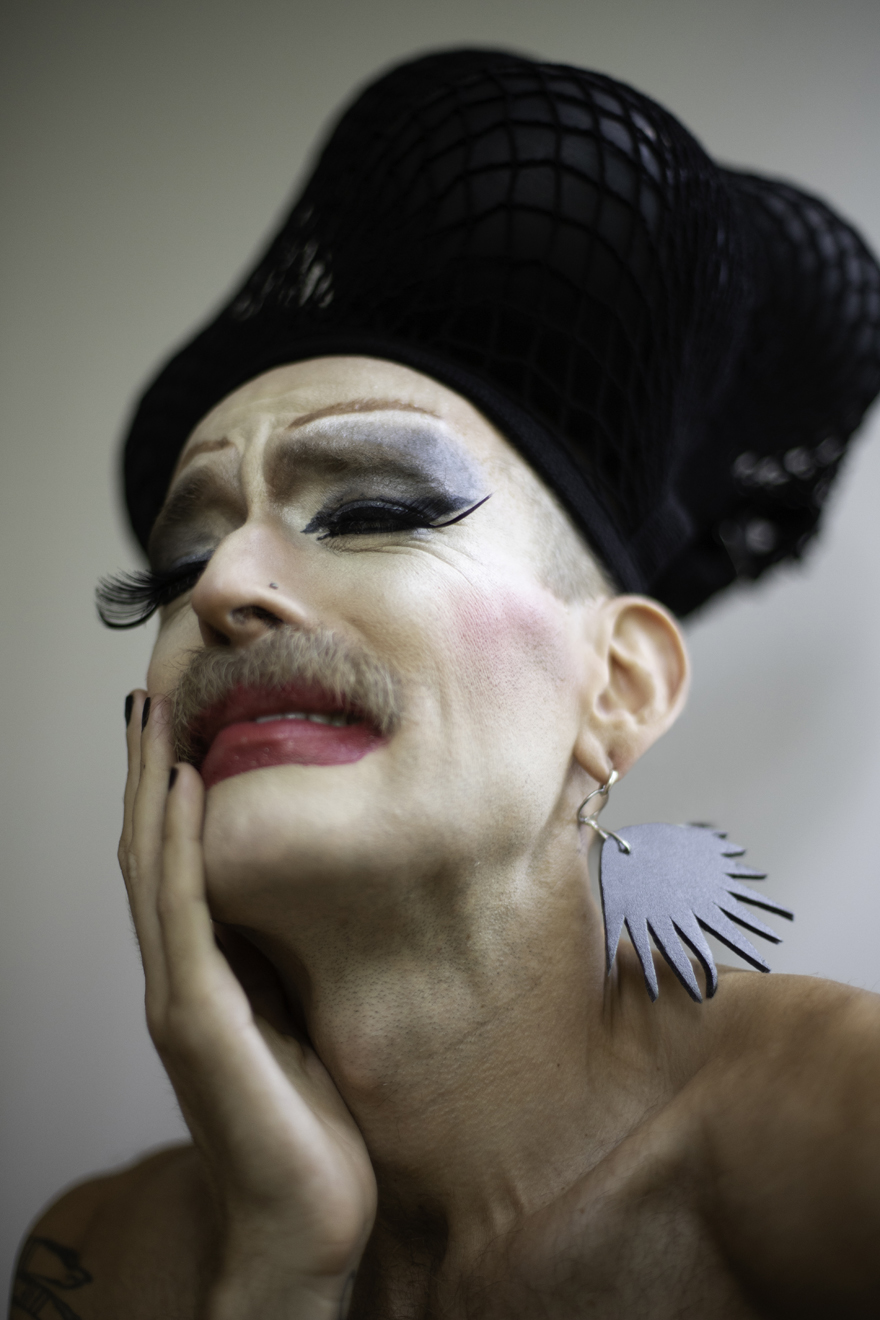
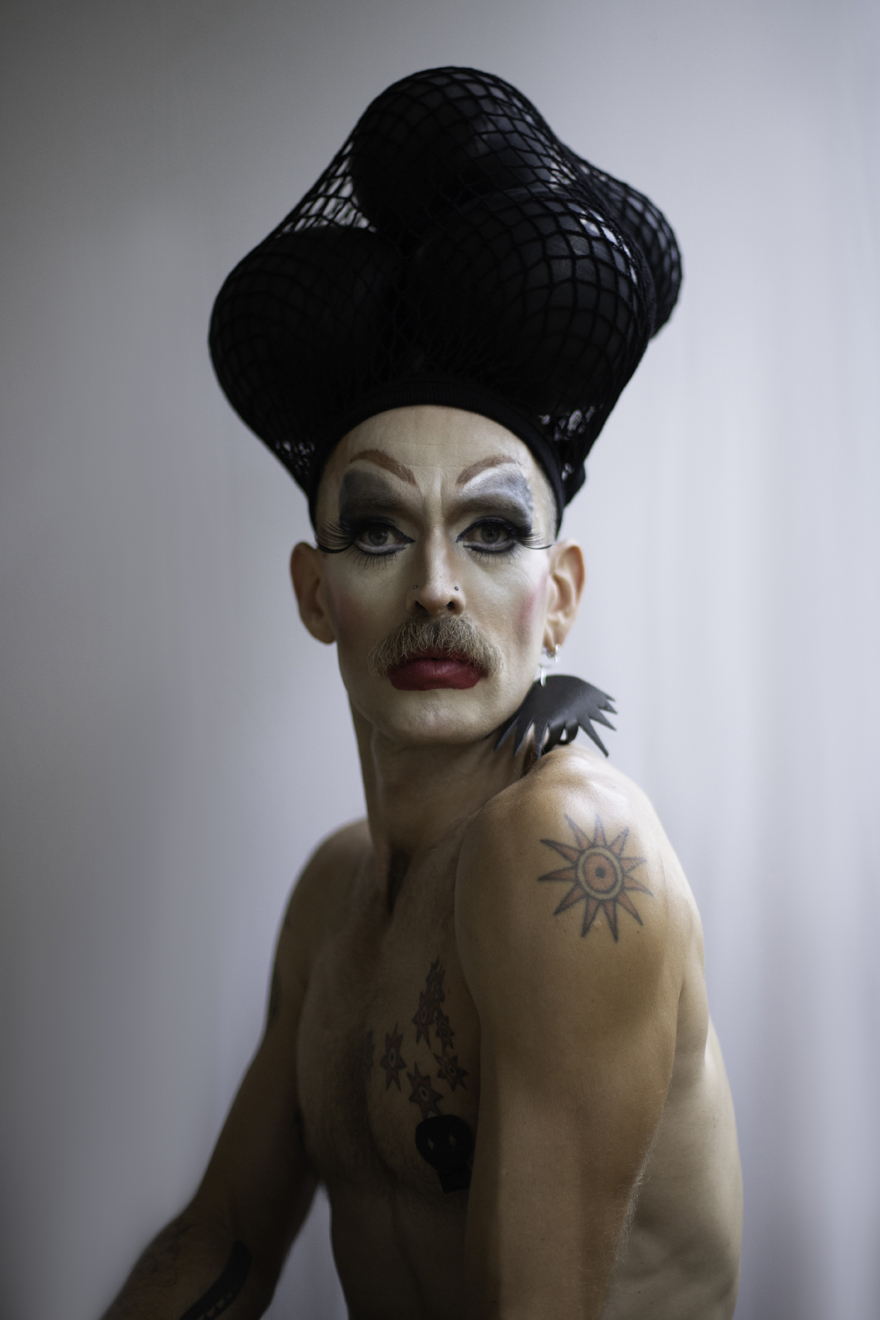
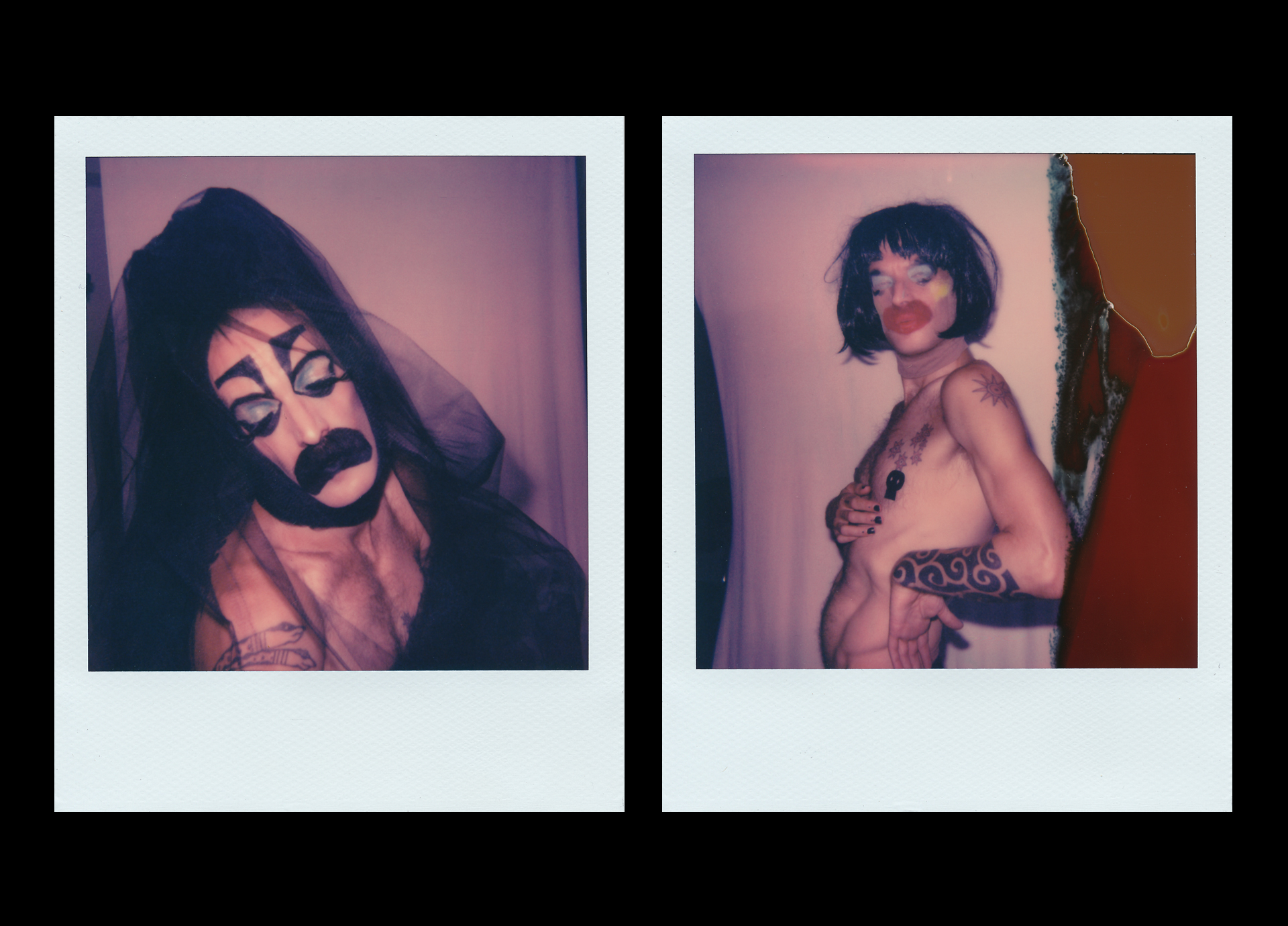
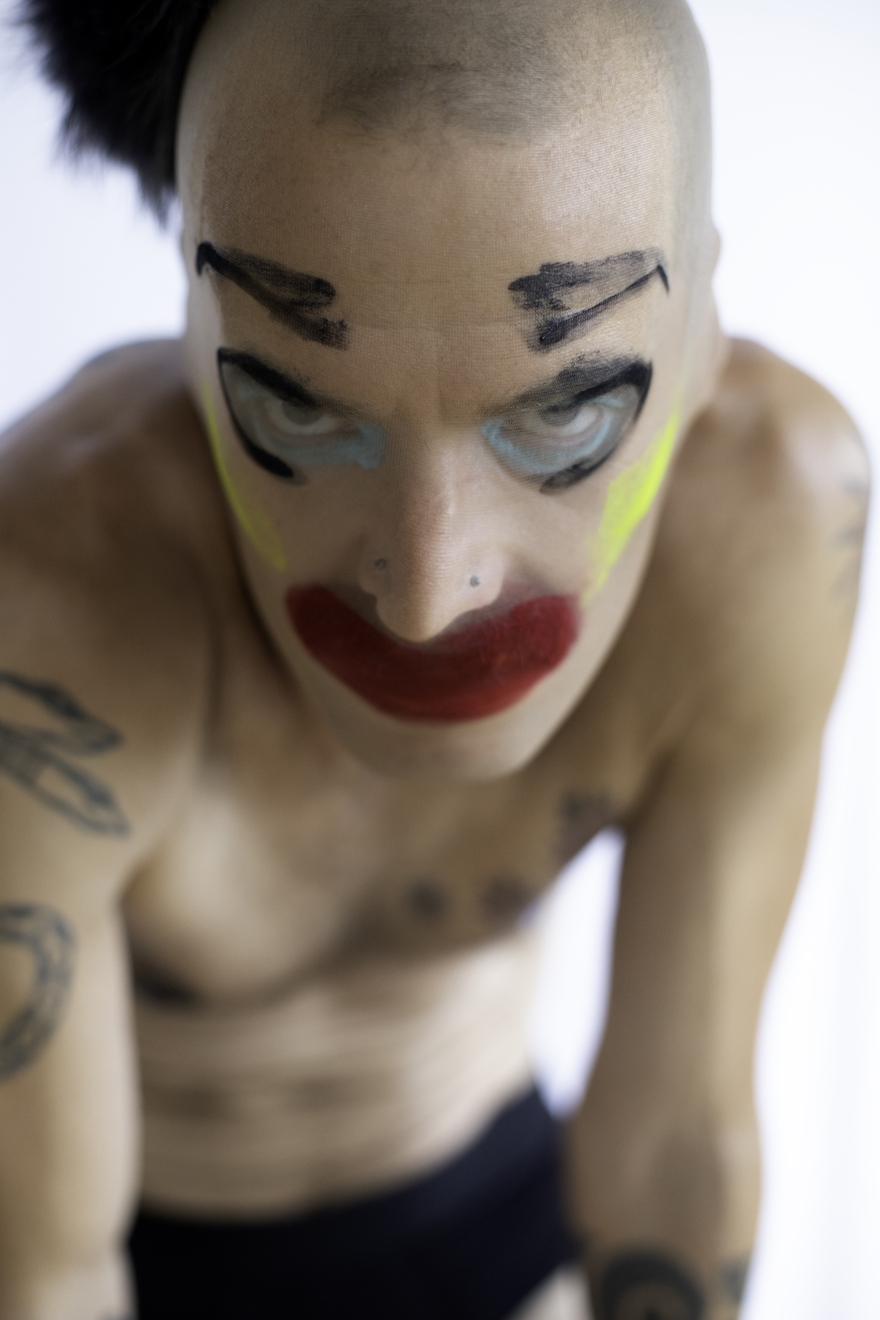
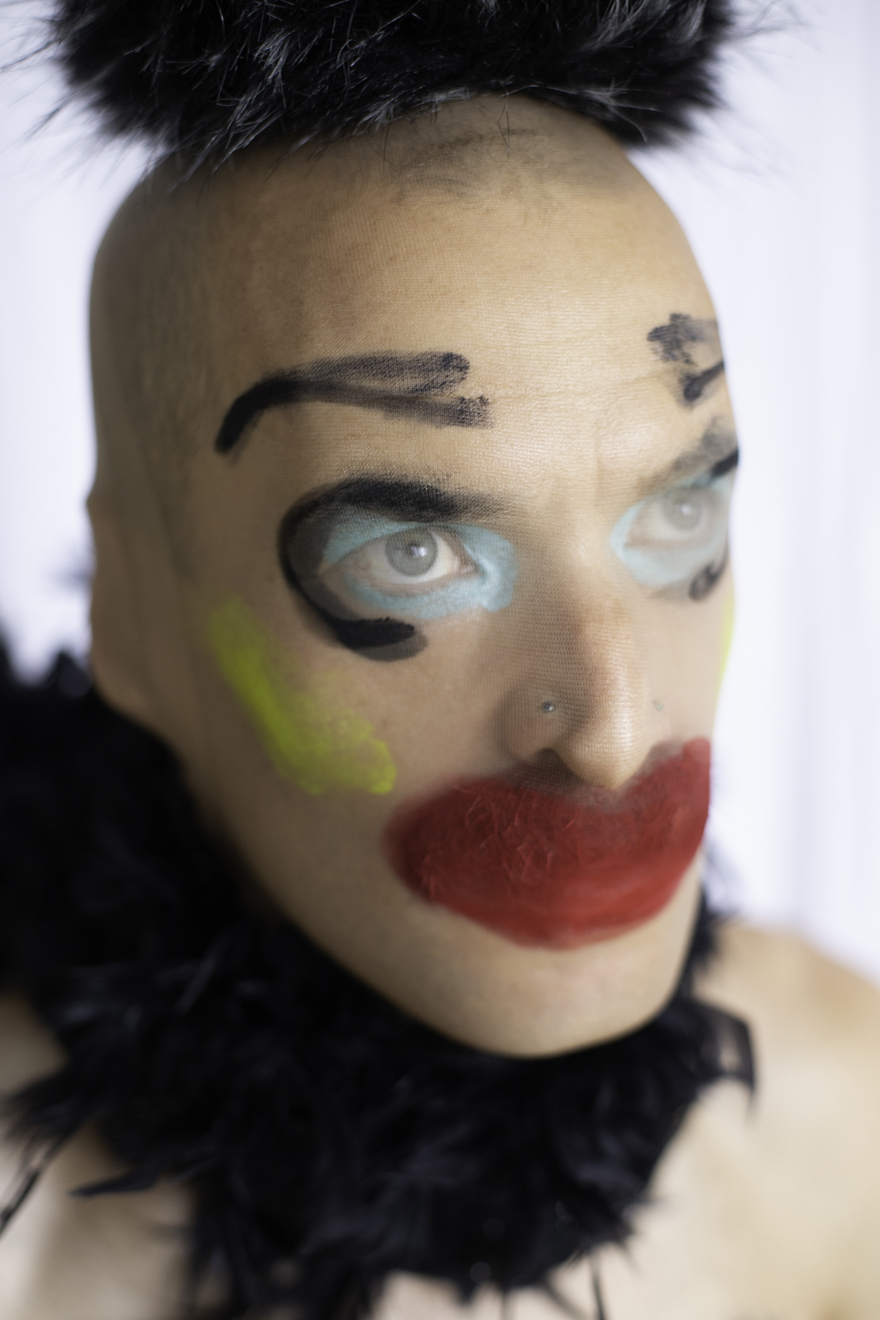
QUOTE
Later, I would learn that this was a common scene on a Saigon night. City coroners, underfunded, don’t always work around the clock. When someone dies in the middle of the night, they get trapped in a municipal limbo where the corpse remains inside its death. As a response, a grassroots movement was formed as a communal salve. Neighbors, having learned of a sudden death, would, in under an hour, pool money and hire a troupe of drag performers for what was called “delaying sadness” … It’s through the drag performers’ explosive outfits and gestures, their overdrawn faces and voices, their tabooed trespass of gender, that this relief, through extravagant spectacle, is manifest. As much as they are useful, paid, and empowered as a vital service in a society where to be queer is still a sin, the drag queens are, for as long as the dead lie in the open, an othered performance. Their presumed, reliable fraudulence is what makes their presence, to the mourners, necessary. Because grief, at its worst is unreal. And it call for a surreal response. The queens - in this way - are unicorns. Unicorns stamping in a graveyard.
On Earth We Are Briefly Gorgeous, Ocean Vuong
Later, I would learn that this was a common scene on a Saigon night. City coroners, underfunded, don’t always work around the clock. When someone dies in the middle of the night, they get trapped in a municipal limbo where the corpse remains inside its death. As a response, a grassroots movement was formed as a communal salve. Neighbors, having learned of a sudden death, would, in under an hour, pool money and hire a troupe of drag performers for what was called “delaying sadness” … It’s through the drag performers’ explosive outfits and gestures, their overdrawn faces and voices, their tabooed trespass of gender, that this relief, through extravagant spectacle, is manifest. As much as they are useful, paid, and empowered as a vital service in a society where to be queer is still a sin, the drag queens are, for as long as the dead lie in the open, an othered performance. Their presumed, reliable fraudulence is what makes their presence, to the mourners, necessary. Because grief, at its worst is unreal. And it call for a surreal response. The queens - in this way - are unicorns. Unicorns stamping in a graveyard.
On Earth We Are Briefly Gorgeous, Ocean Vuong
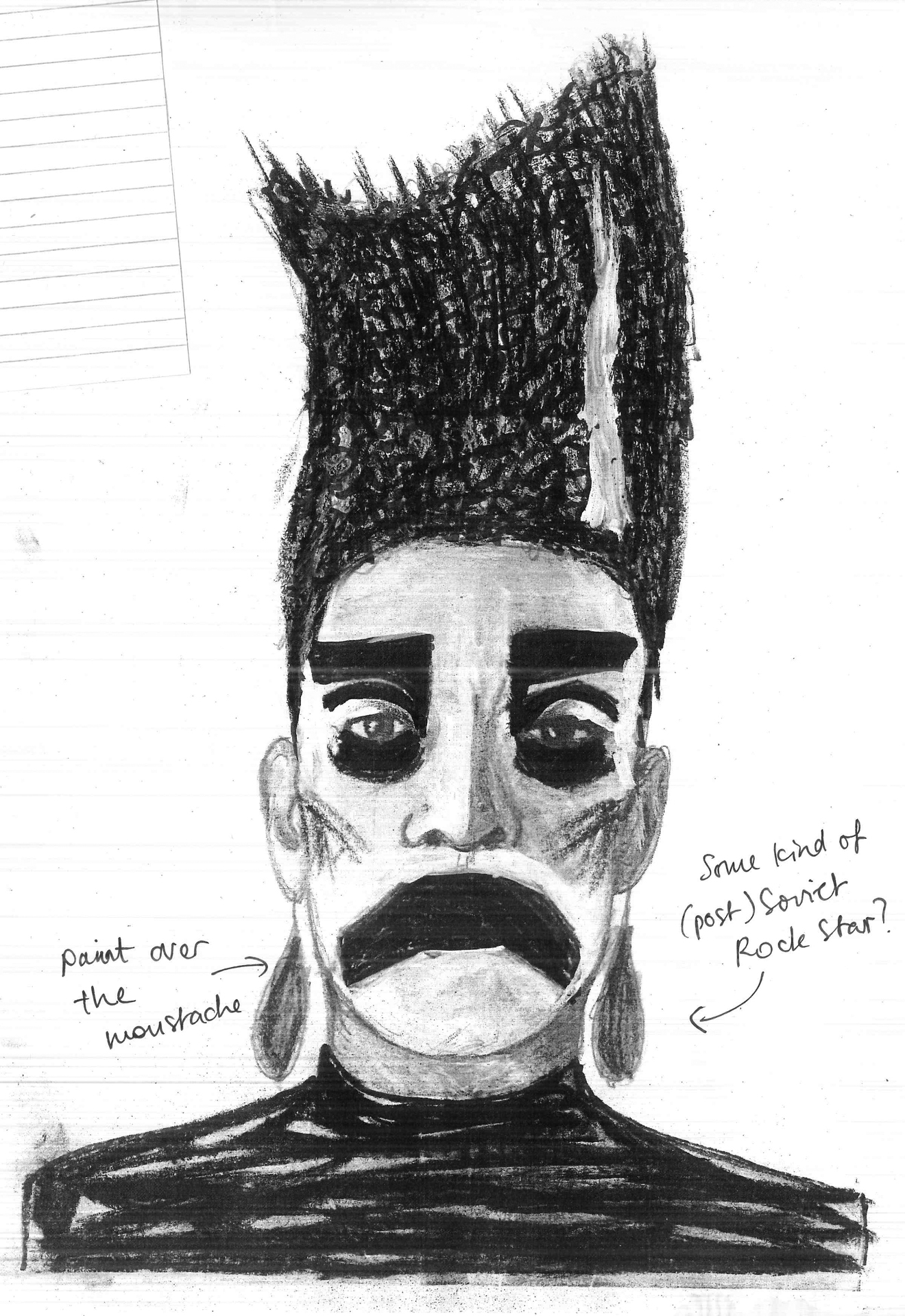


SONGS
We invited our queer communities to tell us about songs that reminded them, for whatever reason, of death, loss, and dying. From this initial archive which was broad and varied, we chose a shortlist of eight songs to work with. Each of these eight songs was written/performed by queer kin.
Find the full longlist of all nominated songs here, as a Spotify playlist.
The shortlist of eight songs is also available to listen to online here.
We invited our queer communities to tell us about songs that reminded them, for whatever reason, of death, loss, and dying. From this initial archive which was broad and varied, we chose a shortlist of eight songs to work with. Each of these eight songs was written/performed by queer kin.
Find the full longlist of all nominated songs here, as a Spotify playlist.
The shortlist of eight songs is also available to listen to online here.
My World is Empty Without You — Diamanda Galás
Last Song — Meredith Monk
On Every Corner — Ani DiFranco
Raedeen — Quinn Christopherson
Marrikh — Mashrou' Leila
For A Friend — The Communards
Anoche — Arca
Run To Me — Brittany Howard
Last Song — Meredith Monk
On Every Corner — Ani DiFranco
Raedeen — Quinn Christopherson
Marrikh — Mashrou' Leila
For A Friend — The Communards
Anoche — Arca
Run To Me — Brittany Howard
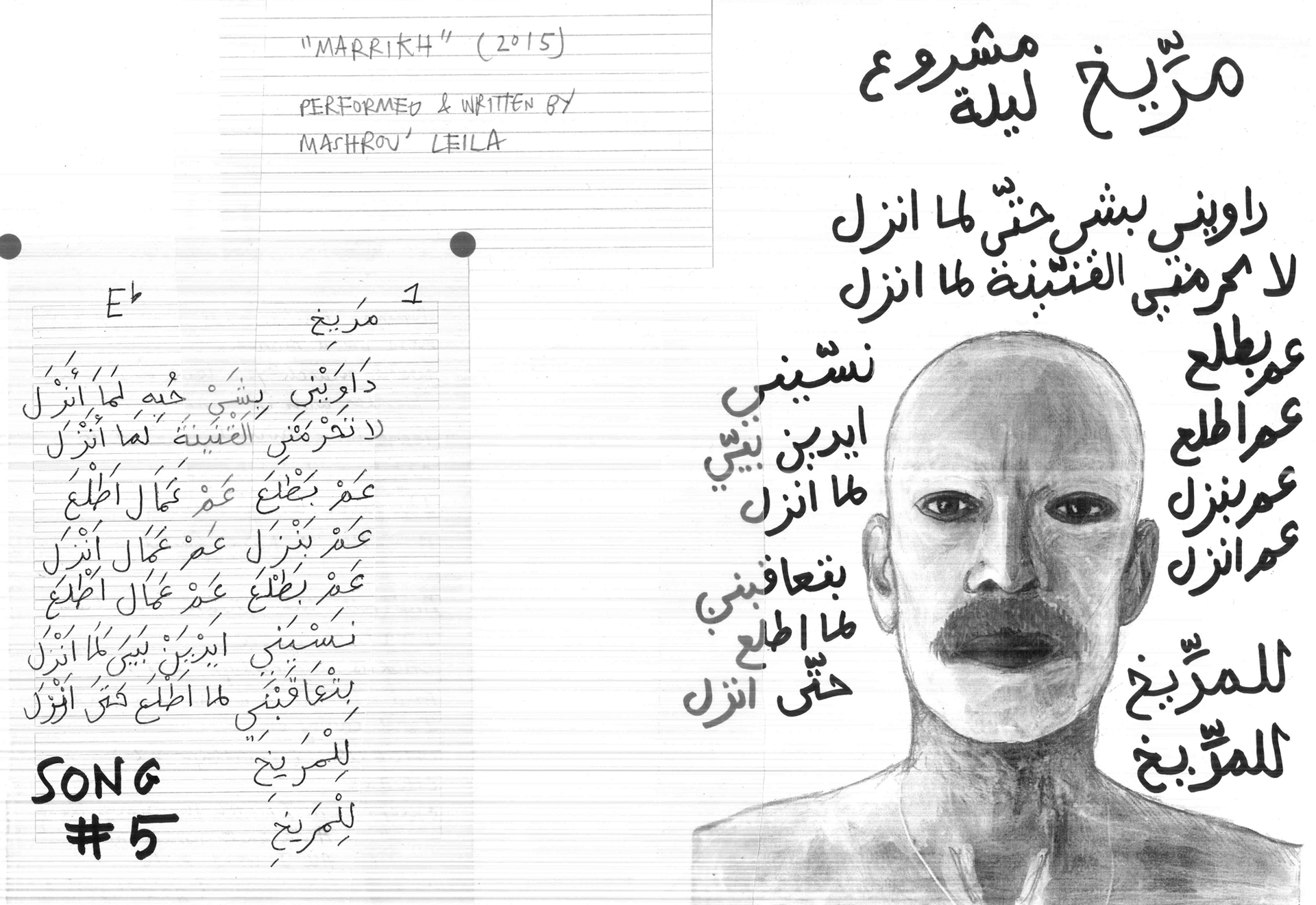
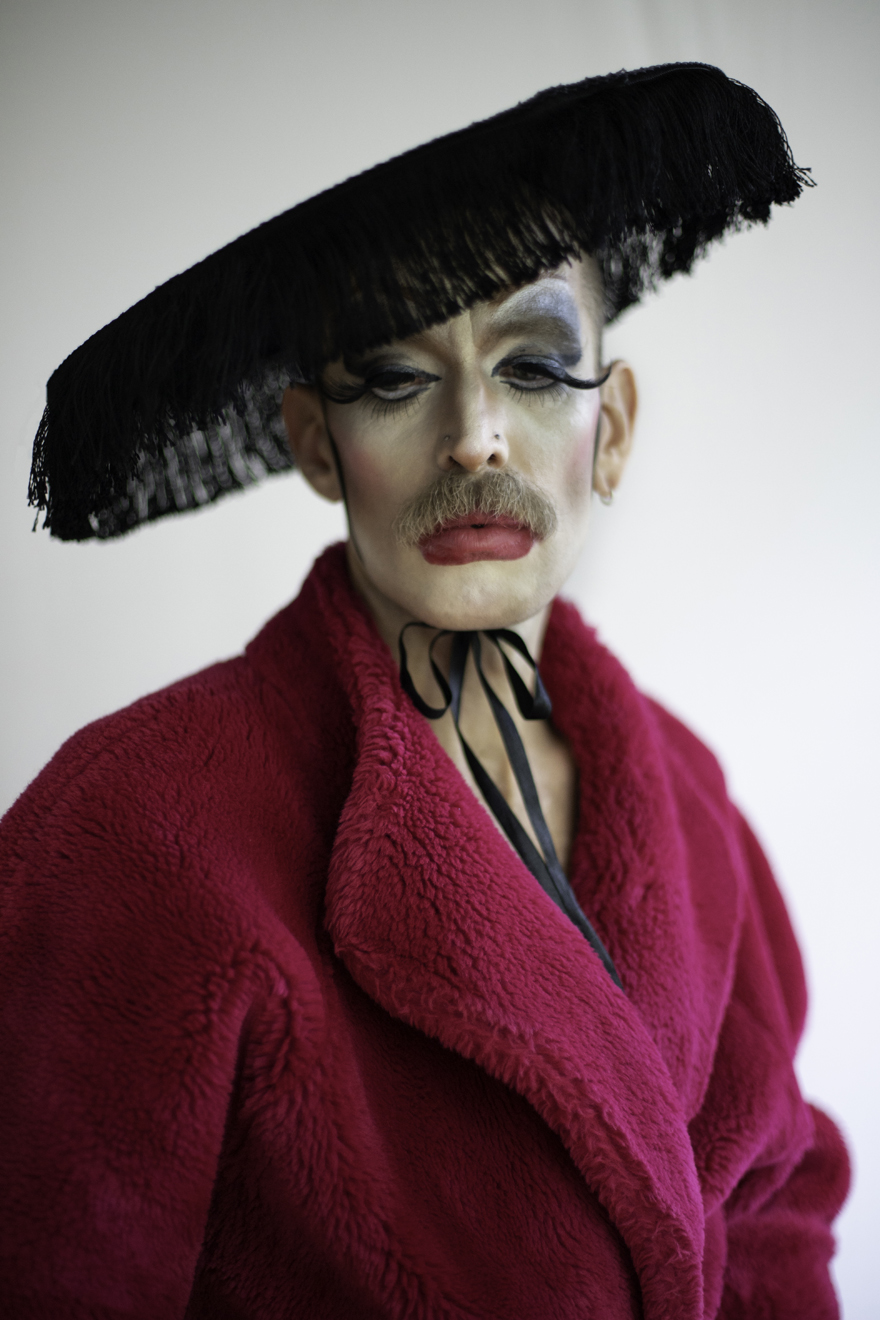
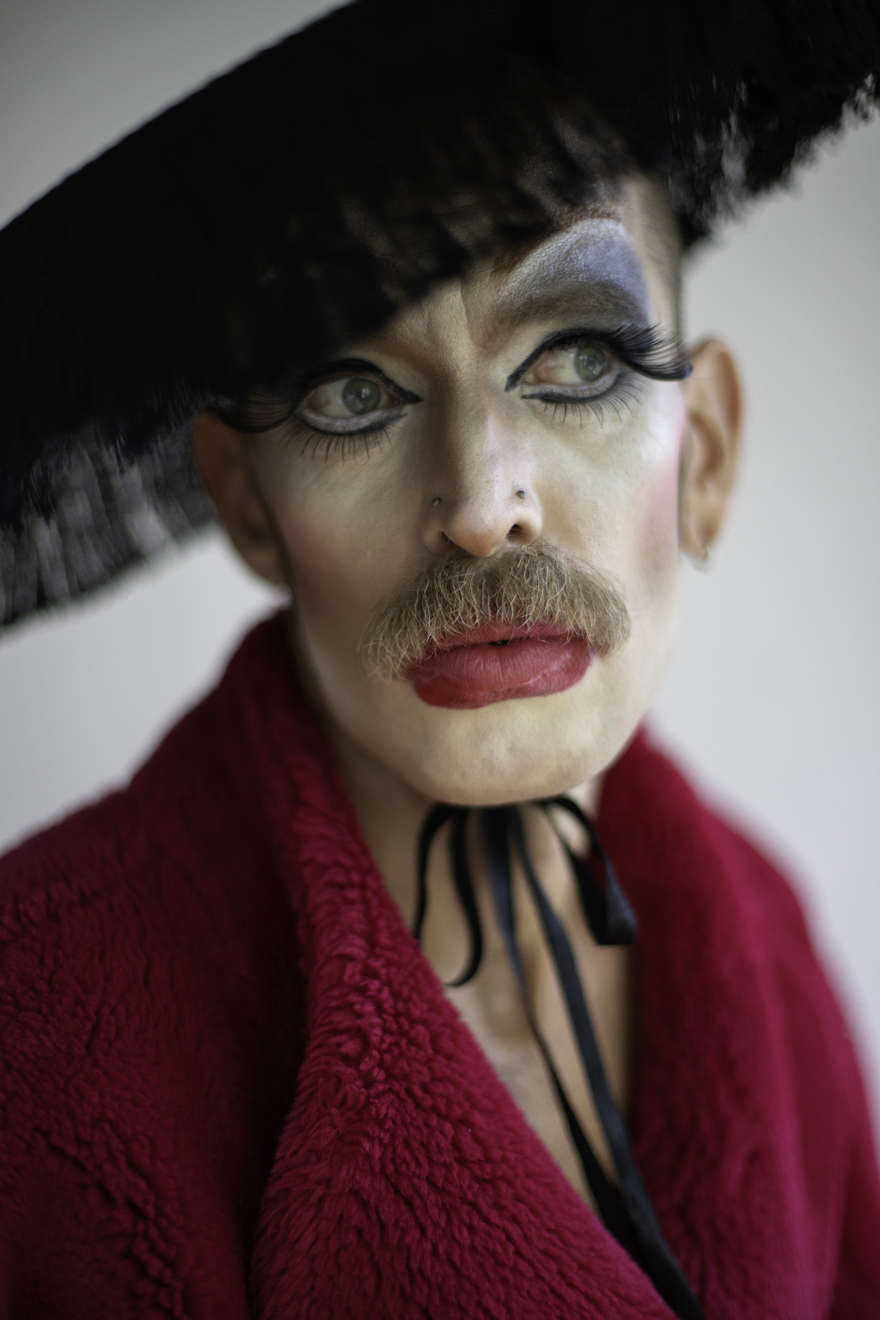

The above images include photographs by Óscar González, and scans from the zine, including illustrations by Chris Gylee.
Tante Tod, and the Fraudulent Delaying of Sadness is a ONCE WE WERE ISLANDS research project.
Additional thanks to: Luky Annash; Abby Boak; Paul Bommer; Josep Caballero Garcia; Jason Corff; Dan Daw; Sanni Est; Kate Gallon; Óscar González; Halvard Haldorsen; Lee Houck; Rob Johnstone; Zed Lightheart; Joseph Morgan Schofield; Cormac McAdam; Stacey Mulcaey; Marion Täschler; Enis Turan; Bo Valentin; Ania Varez; Jeremy Wade; Shlomi Wagner; and all the other song selectors.
Tante Tod, and the Fraudulent Delaying of Sadness is a ONCE WE WERE ISLANDS research project.
Additional thanks to: Luky Annash; Abby Boak; Paul Bommer; Josep Caballero Garcia; Jason Corff; Dan Daw; Sanni Est; Kate Gallon; Óscar González; Halvard Haldorsen; Lee Houck; Rob Johnstone; Zed Lightheart; Joseph Morgan Schofield; Cormac McAdam; Stacey Mulcaey; Marion Täschler; Enis Turan; Bo Valentin; Ania Varez; Jeremy Wade; Shlomi Wagner; and all the other song selectors.